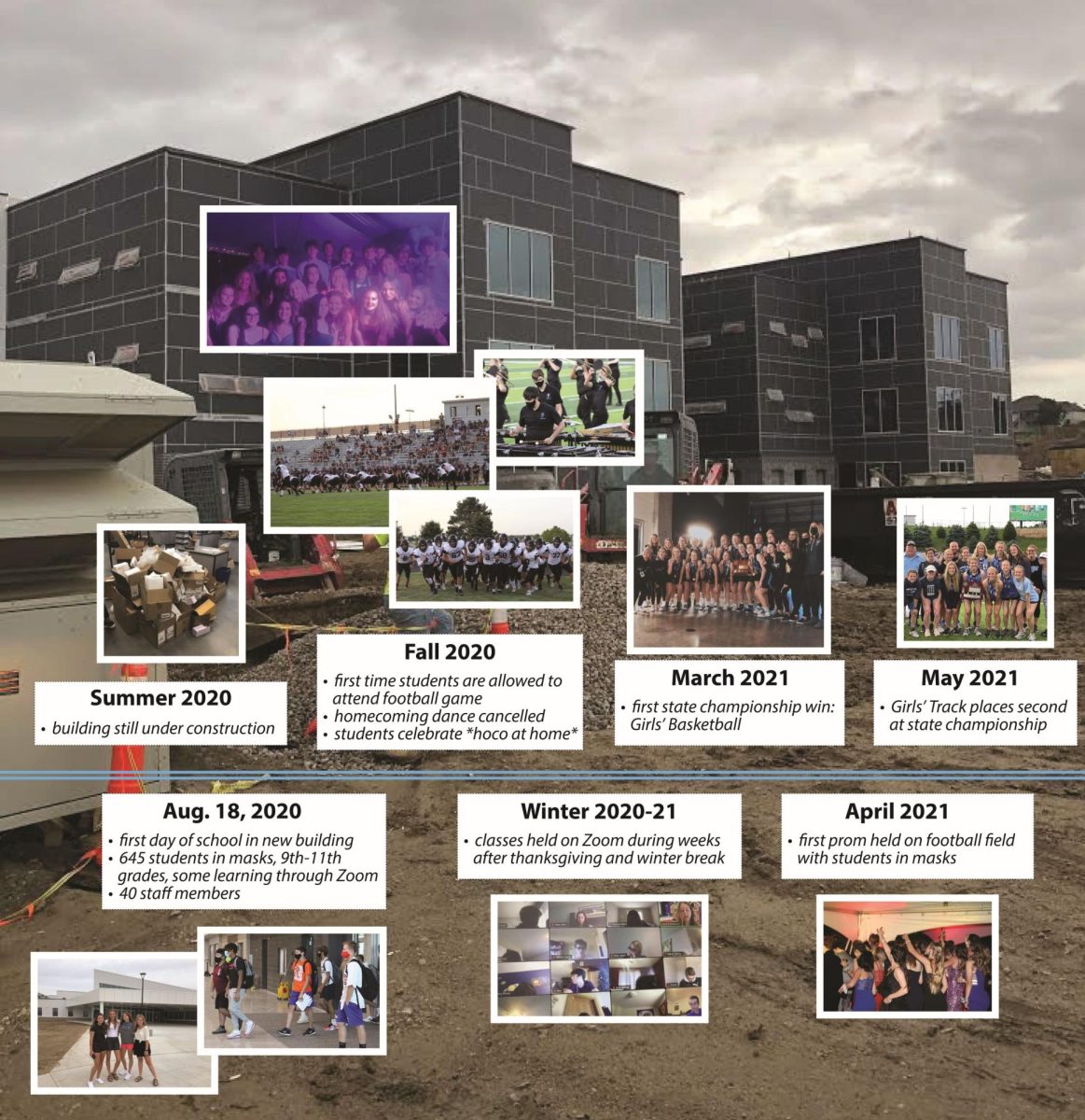With fun new flavors and increased activity levels, high school students commonly consume caffeine on a daily basis.
Caffeine is a liquid stimulant that increases brain and central nervous activity. When consumed properly, it can cause feelings of refreshment and focusness.
Some high school students enjoy the taste of a caffeinated beverage, but with caffeine’s addictive properties it can lead to serious side effects.
“I usually drink Starbucks or Scooters coffee or Redbull because I enjoy the taste of it,” senior Ellie Wagner said. “But if I don’t, then I get really bad headaches and sometimes I get kind of moody.”
Some athletes rely on caffeine in order to have proper energy throughout their day and stay prepared for practices and games.
“I started drinking caffeine right when I first started highschool,” junior Grant Rademacher said. “I usually drink a Bang because I like having energy for sports.”
Other students try to stay clear of caffeine based on its adverse effects on their body.
“I have anxiety in general, so if I drink caffeine it makes my heart rate go up,” senior Jayla Alvarez said.
With caffeine’s addictive properties, it is easy for teens to continually consume on the daily.
“When I first took a pre workout, I used to get tingly, but I have had so much caffeine that I don’t notice it anymore,” Rademacher said. “If I don’t drink it [caffeine] throughout the day, I feel sleepy, so caffeine keeps me alert.”
Daily caffeine consumption can not only have negative mental and physical effects but also it can become a costly habit. According to an Elkhorn North survey, students typically spend between $15 to $40 a week on caffeinated beverages and on average pay $25.83 every week.
Popular energy drink brands have added new flavors to appeal to a new target market: teens. Sweet flavors, such as candies, popsicles, and fruit punch draw teens to drink their product, ultimately resulting in a higher profit for the company.
“I think it’s definitely started to shift, all the flavors are fruity and candy,” history teacher Anthony Dunn said. “The advertising market is gearing towards teens because, in high school, there’s a lot of groupthink. So a couple kids start doing it and then their friends do it.”
Teens commonly follow trends and their friends’ behavior blindly without first considering the potential impacts.
“I don’t know how much caffeine is in each beverage,” Wagner said. “I just know that I have to have it.”
Though caffeine consumption has been popularized, many teens are not aware of the amount they consume on a daily basis. The Center for Disease Control recommends that anyone under the age of 18 does not drink more than 100 milligrams of caffeine per day.
In the short term, caffeine provides needed energy to perform well immediately, but if consumed on the daily, a dependency can result. Teens can experience symptoms of withdrawal such as headache, fatigue, and foggy thinking if they do not receive their daily intake.
“I think caffeine might help you for the day, but then if you continuously make it a habit you are entering a never ending cycle,” Alvarez said.
Outside of high school students commonly consuming caffeine, father, history teacher, and baseball coach Anthony Dunn drinks around five caffeinated beverages ranging from 130 to 200 milligrams in each drink everyday.
“When I am teaching and coaching, I wake up at 4:30 and don’t get home till 6:30 at the earliest,” Dunn said. “And then I got four kids. I am just trying to do the best that I can do.”
In June 2022, Dunn had a severe health scare and woke up in the hospital after passing out. Medical professionals could not pinpoint the exact reason for the incident, but during this time, Dunn was drinking twice the amount of caffeine that he consumes now.
Since this incident, he has cut back on his caffeine intake and notices that when he drinks more water and eats well, he has increased energy levels and does not need to rely on caffeine.
During vital years of development, teens can form life altering habits before adulthood. It is important not to become caffeine dependent due to its potential costly habits and negative physical impacts.
“Your body is still growing and learning how to deal with things,” Dunn said. “Ultimately, if you’re depending on something else to really drive your energy levels then you’re not maximizing your body’s ability to be your best.”









